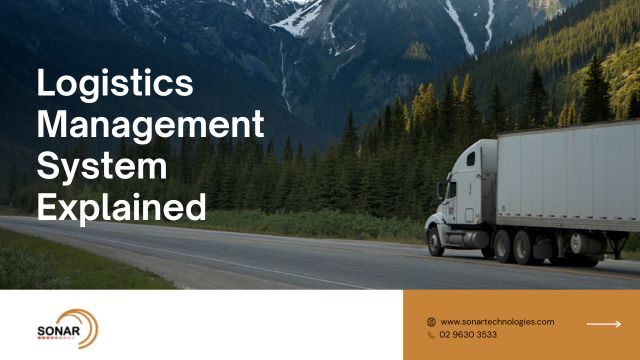Logistics management plays a pivotal role for the success of any business operations. Detailing of each step of your organization’s processes plays an essential role to track workflow progress. It helps entrepreneurs to efficiently organize and manage the process of production to customer purchase. Here, in this lesson, we will talk about what logistics management is, the types of logistics management, hacks for effective logistics management and the distribution networks for logistics management. Logistics management system explained in an easier manner here.
What is logistics management?
Logistics management helps you ensure that you have a plan in place to satisfy your customer’s requirements and one which supervises the kind of resources you have to formulate and consume your product.
Logistics management is a crucial component of supply chain management, and it functions with companies in different verticals to transfer goods and services to the credible point person. Its chief task is the simplification of project lifecycles and goals.
Each step within a logistics management strategy needs to be planned strategically to acquire a concise interpretation of who needs to perform what. Business owners should also make their patrons understand their peculiar logistics management strategy, so they can have a clear idea about what to anticipate.
Types of logistics management
Logistics management consists of four types, which keep on varying with every aspect of the supply process. Let’s discuss those types of logistics systems:
-
Supply management and logistics
It stands for attaining and planning the time materials that are demanded at a designated place, in addition to where these materials need to be kept after their arrival. Morover, this stage retains the examination of the supply of the product you’re shipping to the consumer and see if they have provide any feedback.
-
Distribution and material movement
Distribution and material movement is describer as the act of shipping materials such as loading, unloading and clarifying the stock of the materials you’re planning to ship. You’ll be demanded to pen down the utilization of these materials and ensure these materials reach from the warehouse to the outlet that’s selling these materials to their patrons.
-
Production logistics and management
Production and logistics management suggests the cycle of handling the materials that are demanded to yield a specific product. It gets crucial to come up with the best time to produce a product, so it can fulfil the customers’ demands after they acquire your products from the warehouse.
-
Reverse logistics and product return
It implies to the recovery of materials during the production phase.
Remarkable Tips for Effective Logistics Management
Logistics management is motivated to gain more steps to find out and comprehend the different levels of production, distribution and returns of products you yeild to augment your business’s revenue potential. After logistics management system is explained, given below are a few tips to boost your logistics management exercises for your business:
-
Build a sturdy strategy
A logistics management strategy as hard as concrete assists in addressing as many questions and variables as possible about every phase. It will hold the ability to combat the risks of elements that might give birth to shipment delays and inventory fulfillment. As the main aim is to assure a stable inflow and outflow of supplies, therefore it is necessary to have a blueprint to discover what can make or break a strategy and how it can changed in order to make your company better. Do not forget to avail input from a point person for each stage of logistics before implementation of any strategy.
-
Create an emergency plan
It always advised to have a contingency plan that equips you with the security of identifying how to act when an emergency emerges. Spare some time to ask yourself and the point person in production, distribution and returns about possible unforeseen issues before creating a backup plan.
-
Hire a qualified leader
You should recruit a professional logistics manager if it’s fits within your budget to mange all steps in your strategy, address problems that arise and is proficient in using their relational skills to accomplish your company’s goals. Their experience and expertise within their industry can work wonders in communicating with regional contacts to make tweaks to last-minute shipments.
Examples of logistics management system
-
Distribution and material movement
A warehouse holds the potential to keep grocery items until they need to be shipped to different stores, so it’s essential that the same inventory is leaving the warehouse and same one is arriving at the store.
-
Reverse logistics and product return
The removal of materials from a building site that’s building new apartment homes in the area. Customers probing a refund for a product that they formerly purchased also come within this category.
Conclusion
So what is logistics management? It stands for the administration of supply chain management works that permits organizations plan, control, and execute processes to transport and store goods. That’s all you need to know for logistics management system explained.

